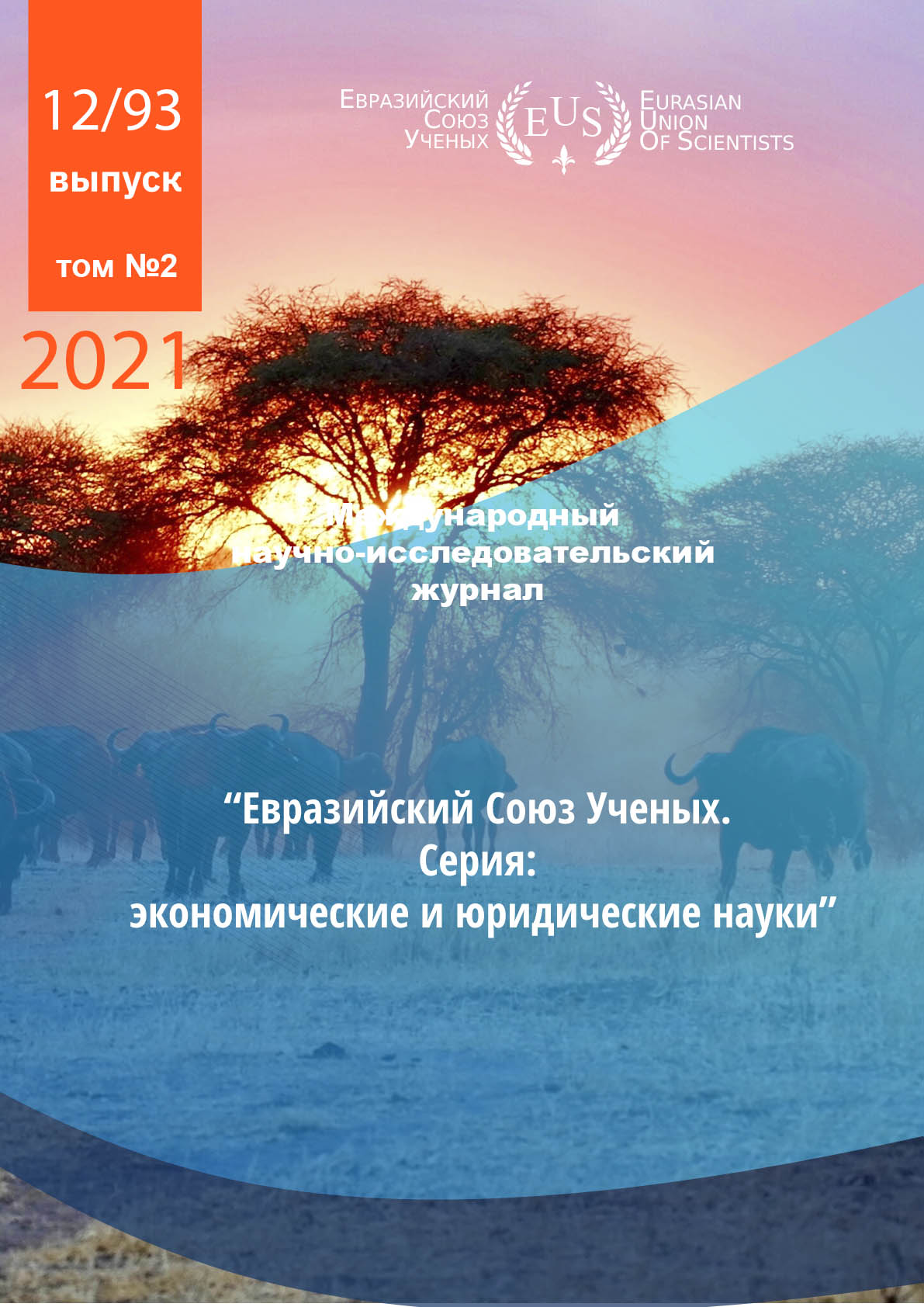ENFORCEMENT OF COLLATERAL OBLIGATIONS (MORTGAGE): CURRENT STATE, PROBLEMS AND WAYS TO OVERCOME THEM
Abstract
This article is devoted to the problem of foreclosure on property that is the subject of a mortgage. A brief review of the historical development of the mortgage institute is carried out, the features of the mortgage subject are highlighted, various approaches to determining the legal nature of the mortgage are considered. On the basis of these theoretical provisions, the problems of law enforcement are considered. The acts of the Supreme and Constitutional Courts, which contain explanations on the possibility of foreclosure on the only housing that is the subject of a mortgage, are analyzed. Examples of decisions of arbitration courts following explanations given by higher courts are given. The conclusion is made about the need for legislative consolidation of the conditions and criteria for foreclosure on the only housing in order to improve legislative regulation in the studied area.
References
2.Bevzenko R.S. Ponjatie i vozniknovenie prava zaloga// Zakon. 2016. № 3. S. 26-45.
3.Volkov A.A. Ipotechnoe kreditovanie: sushhnost', funkcii, klassifikacija //Vestnik Akademii znanij. 2020. № 3. S. 325-330.
4.Grishaev S.P. Vse o nedvizhimosti (registracija prava, kuplja-prodazha, mena, darenie, arenda, naem zhilogo pomeshhenija, ipoteka, nasledovanie): Uchebno-prakticheskoe posobie. – M.: Izdatel'stvo BEK. 2000. 253 s.
5.Eroshenkov S.G. Analiz istorii i jevoljucii ipoteki na primere razvityh i razvivajushhihsja stran – M.: MT-Press. 2004. S. 19-34.
6.Ipotechnoe kreditovanie zhilishhnogo stroitel'stva: Ucheb. posobie / pod. obshh. red. S.A. Baronina, V.S. Kazejkina. M.: INFRA-M, 2014 142 s.
7.Kalugin R.A. Zalog v rimskom prave // Problemy pravovogo obespechenija bezopasnosti lichnosti, obshhestva i gosudarstva. 2015. № 1. S. 267-270.
8.Kulakov V.V. Zalog nedvizhimosti kak sposob obespechenija ispolnenija objazatel'stv: Dis…kand. jurid. nauk. Ul'janovsk, 1999. S. 102.
9.Rodimenkina V.V. Osobennosti obrashhenija vzyskanija na imushhestvo, javljajushheesja predmetom ipoteki // Leningradskij juridicheskij zhurnal. 2020. № 4. S. 88-92.
10. Rossijskoe grazhdanskoe pravo: Uchebnik: V 2 t. T. II: Objazatel'stvennoe pravo / Otv. red. E.A. Suhanov. – 2-e izd., stereotip. M.: Statut. 2011. 443 s. A15-210119/2019. [Jelektronnyj resurs]. URL: https://kad.arbitr.ru/Card/3314fbb2-5f99-4144-ba70c6b1266d414d (data obrashhenija: 11.11.2021).
CC BY-ND
A work licensed in this way allows the following:
1. The freedom to use and perform the work: The licensee must be allowed to make any use, private or public, of the work.
2. The freedom to study the work and apply the information: The licensee must be allowed to examine the work and to use the knowledge gained from the work in any way. The license may not, for example, restrict "reverse engineering."
2. The freedom to redistribute copies: Copies may be sold, swapped or given away for free, in the same form as the original.







